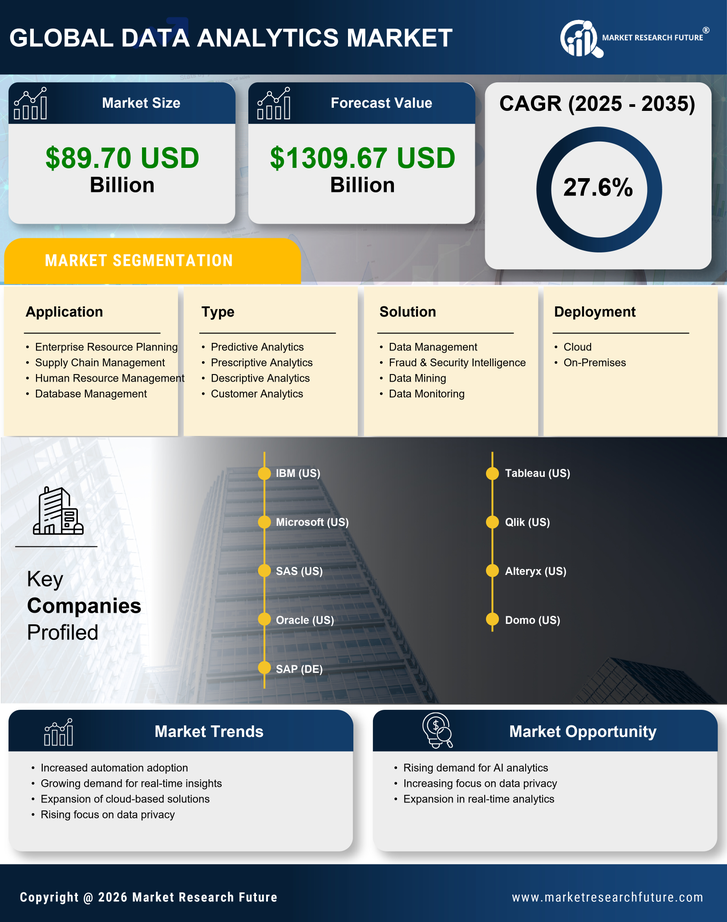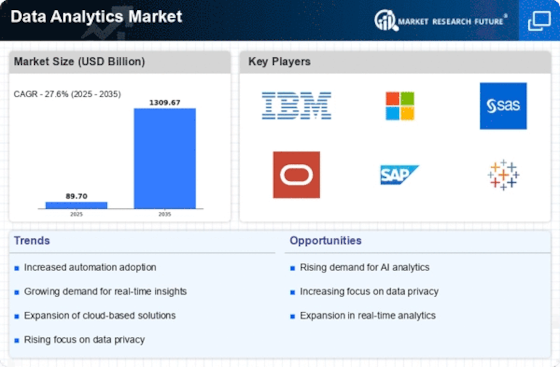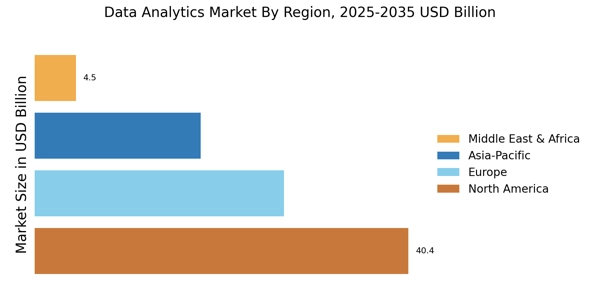Data Analytics Market Summary
As per Market Research Future analysis, the Data Analytics Market was estimated at 89.7 USD Billion in 2024. The Data Analytics industry is projected to grow from 114.46 USD Billion in 2025 to 1309.67 USD Billion by 2035, exhibiting a compound annual growth rate (CAGR) of 27.6% during the forecast period 2025 - 2035
Key Market Trends & Highlights
The Data Analytics Market is experiencing robust growth driven by technological advancements and increasing demand for data-driven insights.
- North America remains the largest market for data analytics, showcasing a strong preference for cloud-based solutions.
- Asia-Pacific is emerging as the fastest-growing region, with a notable emphasis on predictive analytics.
- Predictive analytics continues to dominate the market, while prescriptive analytics is rapidly gaining traction.
- The rising demand for real-time analytics and the integration of artificial intelligence are key drivers propelling market expansion.
Market Size & Forecast
| 2024 Market Size | 89.7 (USD Billion) |
| 2035 Market Size | 1309.67 (USD Billion) |
| CAGR (2025 - 2035) | 27.6% |


















